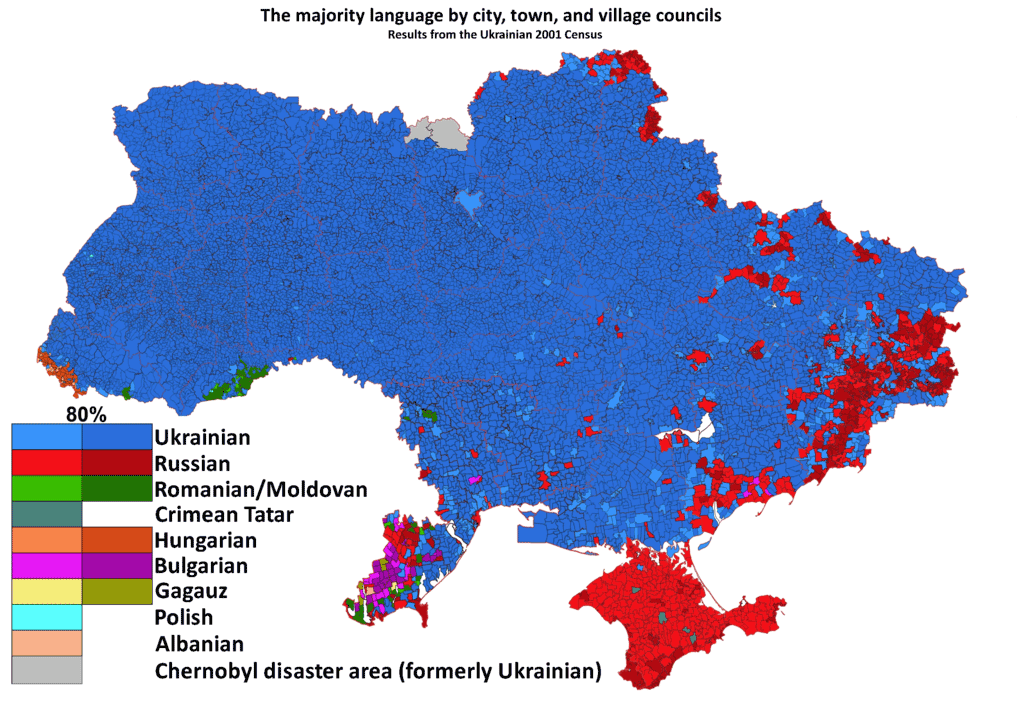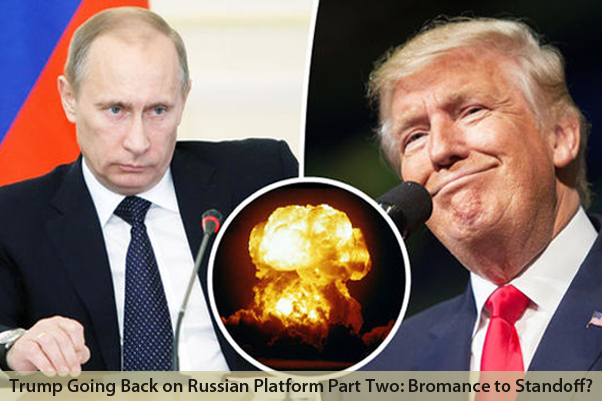New Era News limits itself to reporting and in-depth analysis/synthesis of breaking events.
Interpretation, Extrapolation and Forecasting are provided in Weekly Intelligence Reports released each Saturday
AS STATED IN ARTICLE ONE, in recent days the Trump administration has engaged in some surprising behavior that has reporters and intelligence agents scratching their heads. Not only has his National Security Adviser resigned, President Trump has also indicated that he expects Russia to return Crimea to the Ukraine. This controversial and highly unexpected request came out of no where, as one Russian reporter noted: this will happen as soon as the United States gives California back to Mexico. Together, these executive actions might signal a weakening of what looked like support for a rapprochement with Russia.
g
The Crimean Question
Russian history begins in the Ukraine with the first East Slavic state, the Kievan Rus (Kiev is the modern capitol of the Ukraine). In 988 Prince Vladimir of the Kievan Rus accepted the Christian faith and had his people baptized in the Dnieper. Due to Mongol invasions in the 13th century power shifted northward to what was then a small Rus outpost named Moscow and Ukraine fell prey to foreign invaders. Nonetheless, in the mind of Russian leaders, Ukraine retained its Russian identity; as late as the 19th century czars still referred to the Ukraine as “Little Russia.”
Ukraine did not become an independent nation until 1917 at the end of World War I and the collapse of the Austro-Hungarian and Russian Empires; it was, however, incorporated into the Soviet Union in 1922. It remained under Soviet dominance until 1991 when the nation voted for independence with the dissolution of the USSR. Clearly, Russia has an historic affinity to Ukraine, the Ukrainian capital of Kiev is the birthplace of Russia and czars of Russia trace their lineage back to Prince Vladimir.
Likewise, Russia has historic ties to Crimea which has become a significant point of contention between Moscow and Kiev. After being occupied by the Kievan Rus in the Medieval period, Crimea fell to the Monguls and became part of the Golden Horde, which was followed by the Crimean Khanate and then the Ottoman Empire, which held it unit 1783 when Catherine the Great defeated the Ottomans and Russia re-assumed control of Crimea. Historically, Crimea does seem to be part of Russia. However, geographically speaking Kiev is connected to Ukraine by several strings of land, it appears to be part of Ukraine. Nonetheless, Russia lies only several miles off shore and Russia has ruled Crimea for centuries. This problem was resolved in 1954 when Nikita Khrushchev, for whatever reason, gifted Crimea to the Ukraine.
Since that time, Crimea has been under the control of the Ukraine albeit with ongoing conflict and calls for reunion with Russia, calls that broke out into a cacophony in 2014 during the Color Revolution that split the Ukraine. During that year a referendum to decide if Crimeans wanted to remain a part of the Ukraine or rejoin Russia was held. When 97% of Crimeans voted for union with Russia, Crimea once again became a Republic of Russia. The Russian argument becomes stronger when considering the ethnic-language map below. Clearly, Eastern Ukraine and esp. Crimea are linguistically Russian
h

Nonetheless, many countries, including the United states and Canada, considered the Crimean referendum to be illegitimate. Thirteen members of the UN Security Council (comprised of 5 permanent – with veto power – and ten non-permanent members) also declared that the referendum was illegitimate; however, the vote was vetoed by Russia and China abstained. The measure was then taken up by the UN General Assembly which passed a resolution by a vote of 100-11 (58 abstentions) that the referendum was invalid.
The Security Council action was legitimately and legally vetoed and the General Assembly could only muster a “resolution”, a resolution with no bite behind it because the Security Council had already vetoed the resolve. Russia, moreover, has made the somewhat compelling argument that people everywhere have a right to secede from one nation and enter into a union with another or to remain independent if that is their common desire. For example, Scotland recently held a referendum to secede from Great Britain and Kosovo held a referendum to secede from Serbia despite the fact that the Preamble of the Serbian Constitution declares that Kosovo ‘is an integral part of the territory of Serbia’.
Nonetheless, Kosovo, backed by US military might, unilaterally declared its independence leading to protracted and violent warfare. Although Kosovo was recognized by many members of the European Union, five nations refused to recognize her secession: Spain, Slovakia, Cyprus, Greece and Romania. There does seem to be some validity to the desire of the Crimean people to decide for themselves what nation they want to belong to – besides, the Crimean referendum backed by Russia was carried out peacefully; whereas, the Kosovo referendum resulted in an ocean of violence, war brutality, and ethnic cleansing over a protracted period of 16 months. It included a NATO bombing campaign that never gained approval of the UN Security Council and caused at least 488 Yugoslav civilian deaths – Russia did not drop any bombs on either the Ukraine or Crimea.
Nonetheless, The Obama administration almost immediately imposed sanctions on Russia:
“We’re making it clear that there are consequences for their actions,” the president said. And, he warned, “If Russia continues to interfere in Ukraine we stand ready to impose further sanctions.”
h
“A senior administration official later called the action, “far the most comprehensive sanctions applied to Russia since the end of the Cold War.”
The European Union also imposed sanction saying it would “freeze assets of, and ban travel for, 21 officials in Russia and Ukraine” adding: “We urge our counterparts and financial institutions around the world to shun these individuals.”
Conflict between the United States and Russia was apparently heating up and began to reach fever pitch toward the end of the Obama administration. For example, Obama’s good-bye gift to Putin was a further deployment of US troops to the Russian border. According to the BBC, just four days before the Trump inauguration:
“More than 80 main battle tanks and hundreds of armoured vehicles have already arrived in Germany and are now being moved into eastern Europe by road and rail. The US Armoured Brigade will also carry out military exercises in the Baltics, all part of President Obama’s response to Russia’s intervention in Ukraine and to reassure nervous NATO allies.
j
“Russia says it views the arrival of more than 3,000 US soldiers in Poland as a threat to its own security….It is the largest US military reinforcement of Europe in decades.”
kh
“President Vladimir Putin’s spokesman Dmitry Peskov told the BBC that the move “threatens our interests and our security….It’s a third country that is building up its military presence on our borders in Europe,” he said. “It isn’t even a European country.”
All this despite the fact that President-elect Trump indicated that he prefers non-intervention, unless American interests are directly at stake; he respects the sovereignty of nation states; a reduction of global involvement and of international institutions; and accordingly prefers bi-lateral agreements brokered by the United States itself. He even indicated that he might support Russia’s acceptance of Crimea, and that the issue is a European not an America problem. But as of this week, his National Security Adviser has resigned and Trump is alleging that Putin “TOOK” Crimea from Ukraine and that Obama was “too soft” on Russia. Now, he wants Crimea given back to the Ukraine. In this regard, White House spokesman Sean Spicer said earlier this week that the Trump administration expects Russia to “return Crimea” to Ukraine.
“President Trump has made it very clear that he expects the Russian government to deescalate violence in Ukraine and return Crimea,” Spicer nuanced his remark by adding that “at the same time, he (President Trump) fully expects to and wants to get along with Russia“
This might be hard feat to accomplish, since Russia has no intention of giving up Crimea.
In response to Spicer’s statements, Maria Zakharova, Russian Spokeswoman for Foreign Affairs immediately rose to correct President Trump’s allegation that Russia “TOOK” Crimea and should give it back.
“We don’t return our territories. Crimea is a territory of the Russian Federation.”
b
f
Echoing Zakharova, Viktor Ozerov, Chairman of the Defense Committee in the Russian Upper House stated:
“The issue of Crimea return is absolutely clear — it is part of Russia and it cannot be subject of bargaining between Russia and the United States, no matter what is at stake.”
From a campaign strategy that featured a rapprochement with Russia, working together to defeat ISIS, and seeking global peace, the Trump administration has apparently changed course drastically; they are now saying the United States needs to be tougher on Russia. Trump has apparently confirmed the buildup of troops on the Russian border sent there by President Obama days before he left office and now is making ludicrous request for Russia to return Crimea – All this from a president who indicated during his campaign that Crimean’s were happier being a part of Russia.
“But you know, the people of Crimea, from what I’ve heard, would rather be with Russia than where they were.”
Since there have been no uprisings and anti-Russian demonstrations in Crimea and indicators are that the people are pleased with Russian rule, at least more than they were with Ukrainian rule, it can be presumed that the referendum was a valid expression of the majority and that President Trump was correct about their rather being with Russia. Does he want the people of Crimea to suffer a set-back by negating their referendum and being forced back into a union with the Ukraine that 97% of them indicated they do not desire? This does not seem to be a prudent diplomatic, democratic or humanistic move to make.
d
Why the Turn Apparent Around? What is going on?
The whole situation might be explained as a power move by Trump to enhance his bargaining position vis a vis Putin. In this regard. After signing in “Mad Dog Mattis” as Secretary of Defense, Trump stated:
“I’m signing an executive action to begin a great rebuilding of the armed services of the United States, developing a plan for new planes, new ships, new resources and new tools for our men and women in uniform,” Trump said after the swearing-in the retired Marine general. “I’m very proud to be doing that.”
f
“Our military strength will be questioned by no one, but neither will our dedication to peace,” he added. “We do want peace.”
To which the new Secretary of Defense responded:
“Thank you very much for your confidence in me and welcome to the headquarters of your military — your always loyal military — where America’s awesome determination to defend herself is on full display,” said the new secretary of defense at his swearing in ceremony.
h
“You’ve made clear Mr. President your commitment to a strong national defense,” he added.
Trump has instructed Secretary Mattis to get the United States in a position to bargain with Russia, to bargain from strength. The problem is that Putin is also stacking his deck; in response to American aggressiveness, President Putin has ordered the Russian Air Force to prepare for a “time of war”.
According to Russian Defense Minister Sergey Shoigu:
“In accordance with the decision by the Armed Forces Supreme Commander (President Putin), a snap check of the Aerospace Forces began to evaluate readiness of the control agencies and troops to carry out combat training tasks.”
k
“Special attention should be paid to combat alert, deployment of air defense systems for a time of war and air groupings’ readiness to repel the aggression.”
Before anyone gets war crazy, it was and is highly expected, as we indicated at the close of Part One, that relations with Russia will be brought to a boiling point, but this does not necessarily mean war. Given the highly unusual tenor of this should be no story (The resignation of Flynn and Crimean situation), Newera has shuffled the issue to its Intelligence Department for further analysis. The Flynn-Crimean debacle appears to be part of a related story necessitating a broader investigation into the Neocon-Neoliberal deep government, Russia and American Foreign Policy, Fatima and an Era of Peace.
An Intelligence Report on this topic is planned for Sunday Reading







